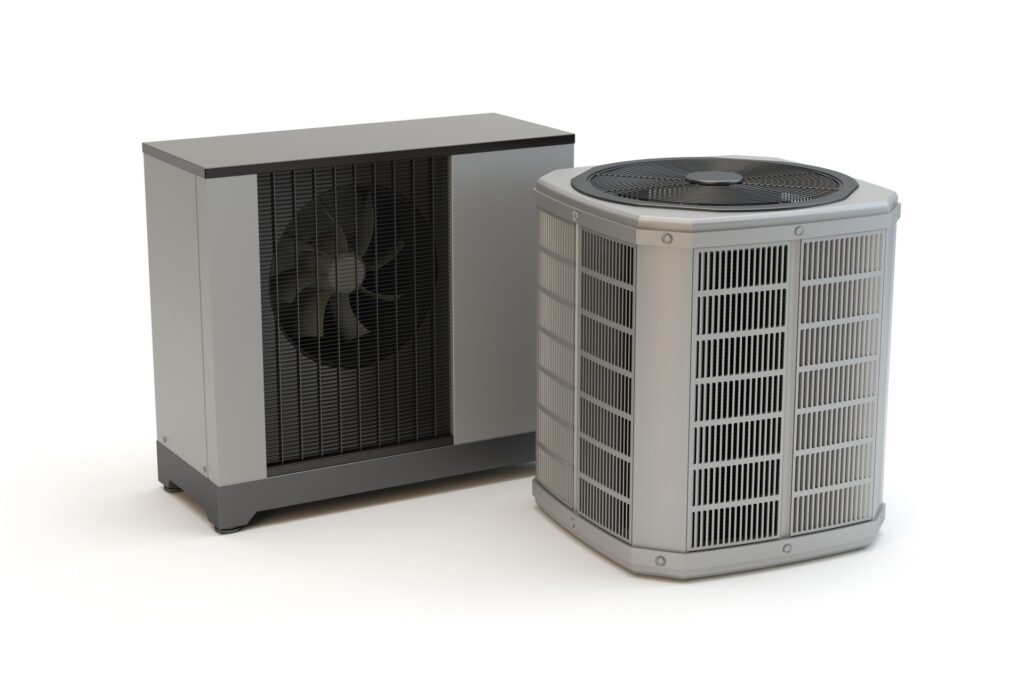When you’ve got the right heat pump installed in your home, you have your worries for year-round comfort taken care of. Heat pumps switch easily between heating and cooling modes, and they work at terrific energy efficiency in Oregon’s winter weather.
A heat pump replacement in Cottage Grove, OR isn’t something you’ll look forward to, but you cannot expect your heat pump to keep doing the same great job year after year. With regular maintenance, your heat pump can enjoy a long service life, but at some point it will wear down beyond what maintenance and cost-effective repairs can do.
How long will your heat pump last? When should you consider that replacement? We’ll discuss this below.
Average Heat Pump Lifespan and Expectations
On average, a well-maintained heat pump can last between 10 to 15 years. This range depends on several factors, including the brand, model, and how well it has been cared for. With regular maintenance, some heat pumps can even exceed the 15-year mark, but eventually, all systems will experience wear and tear that affects their efficiency and effectiveness.
What Affects How Long a Heat Pump Lasts?
Several factors can influence how long your heat pump will last:
- Regular Maintenance: Routine maintenance, such as annual inspections and tune-ups, is crucial for maximizing the lifespan of your heat pump. Regular maintenance helps to catch small issues before they become major problems and ensures the system is running as efficiently as possible.
- Usage: A heat pump used year-round for both heating and cooling will experience more wear than one used less frequently. In regions like Oregon, where temperatures fluctuate, heat pumps often run throughout the year, which can shorten their overall lifespan. To stay ahead of wear-related issues, it helps to monitor for common problems that heat pumps experience so you can catch them early.
- Climate Conditions: Oregon’s relatively mild winters are advantageous for heat pumps, but harsh weather, particularly extreme cold, can cause the system to work harder and wear down more quickly.
- Quality of Installation: A poor installation can significantly reduce the lifespan of your heat pump. Improper installation may lead to efficiency issues and increased strain on components.
How to Know When to Replace a Heat Pump
Even with diligent maintenance, heat pumps eventually reach a point where replacement becomes the best option. Here are some signs that it might be time to consider a new system:
- Rising Energy Bills: If your energy bills are steadily increasing, and your heat pump is more than 10 years old, it may be losing efficiency. This could indicate that the system is working harder to maintain the same comfort levels, which typically points to aging components.
- Frequent Repairs: Needing repairs more frequently is a major signal that your heat pump is nearing the end of its life. If the cost of repairs is adding up, it may be more economical to invest in a new system.
- Inconsistent Comfort: If your heat pump can no longer maintain a consistent temperature throughout your home, even after repairs and maintenance, it’s a sign that the system is wearing down. This may be one of several warning signs you’ve got heat pump trouble that could mean your unit is no longer operating as it should.
- Unusual Noises: Older heat pumps may start to make unusual sounds, such as rattling, grinding, or squealing, which can indicate failing components.
Ready for Replacement? Ask These Questions
If your heat pump is nearing the end of its expected lifespan and showing signs of decline, it’s worth considering a replacement. Newer heat pump models offer better energy efficiency, improved comfort, and advanced features that can save you money in the long run.
For heat pump replacement contact us today. We’ll help you find the best system to keep your home comfortable year-round. If your current unit has been starting and stopping frequently, it could be suffering from a short cycling issue—a common efficiency killer that often signals it’s time to consider upgrading.
Contact Associated Heating and Air Conditioning, Inc. today for HVAC service for your heat pump.

